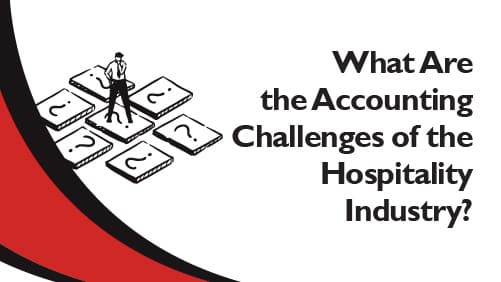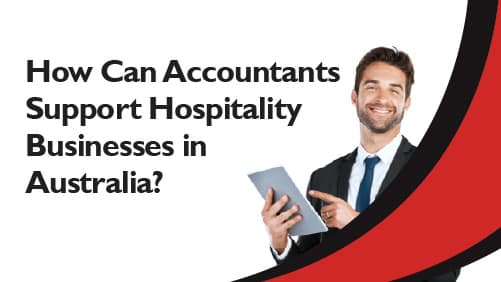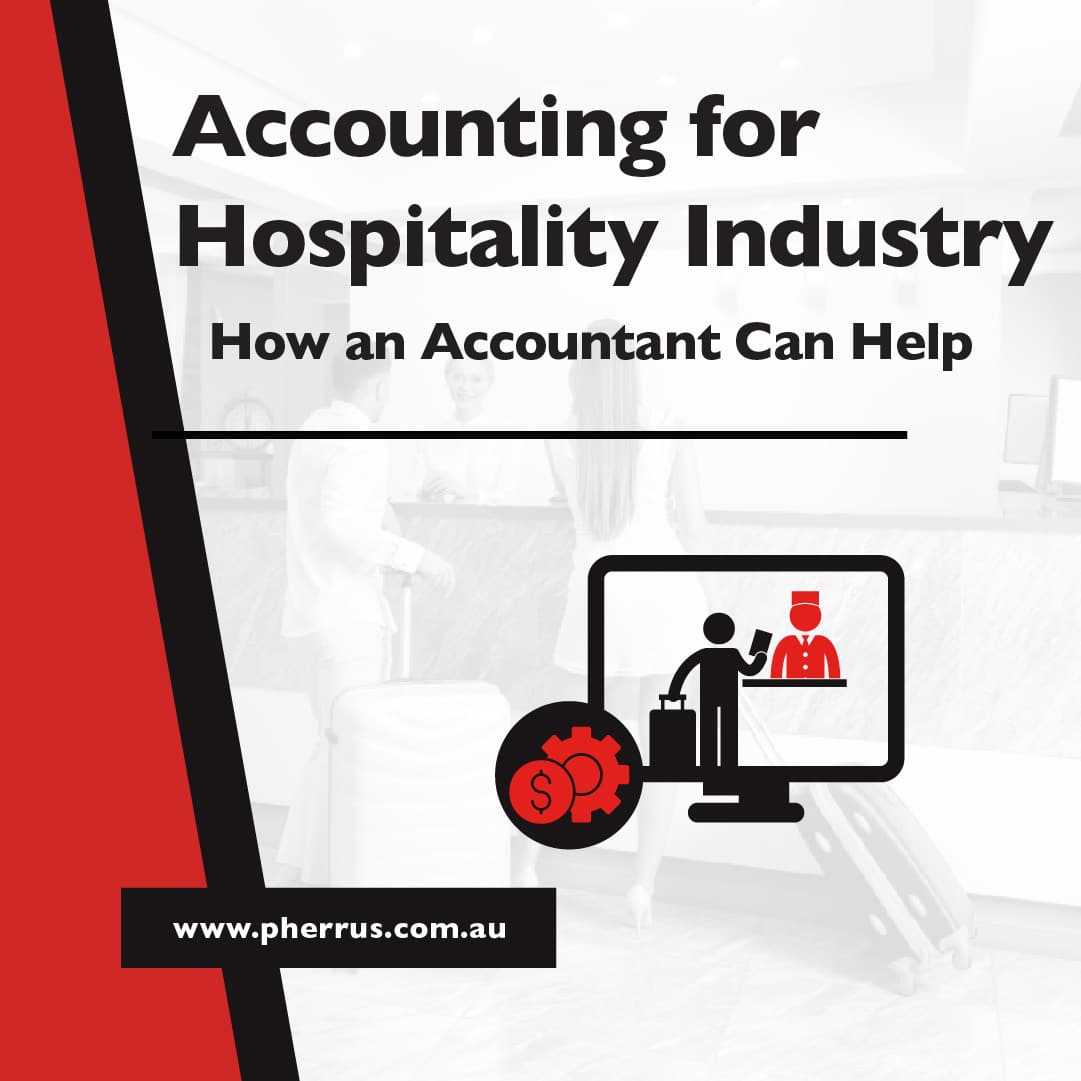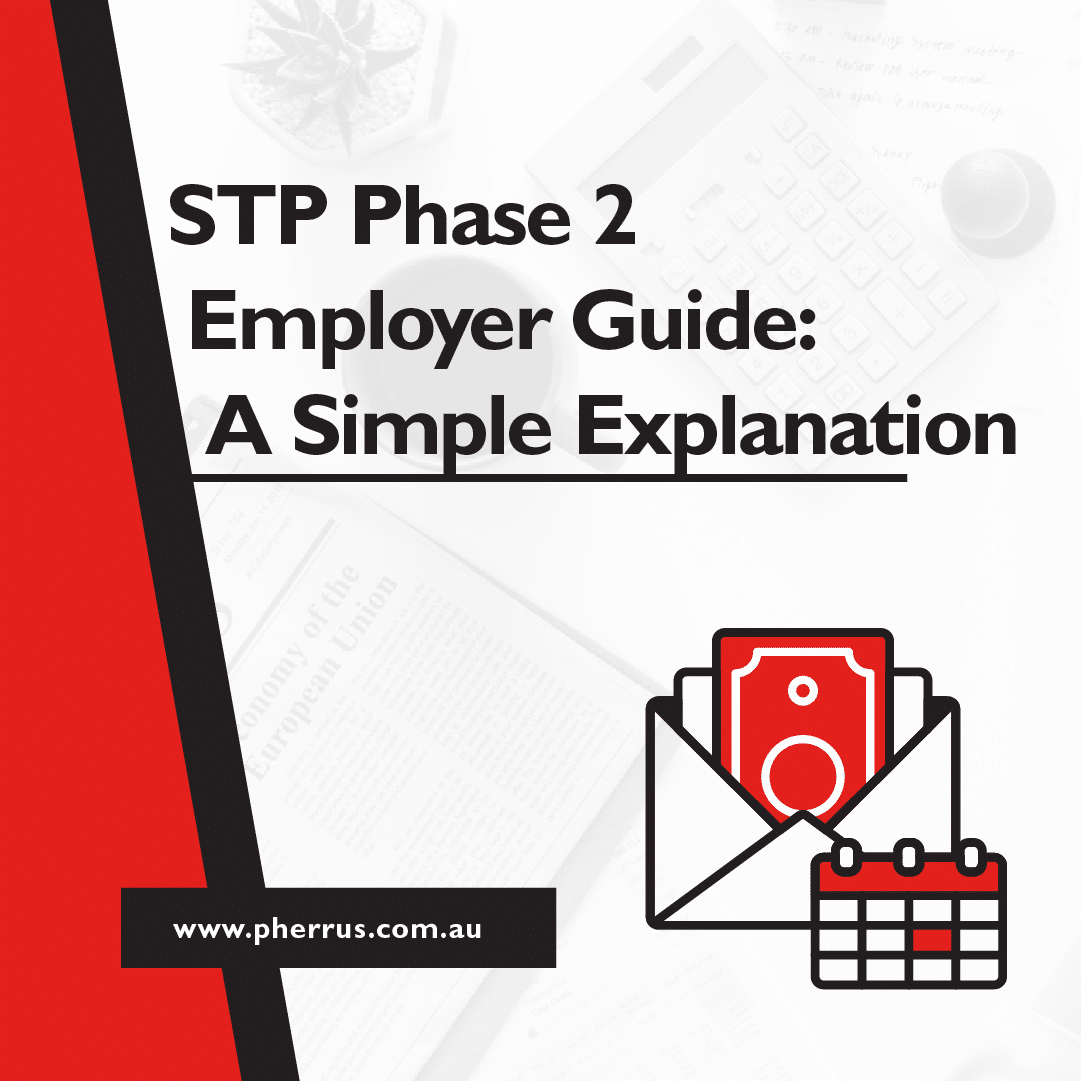If you’re running a hospitality business- a bustling restaurant, a cosy pub, a vibrant club, or an inviting hotel- you already understand the distinct blend of exhilaration and exhaustion that defines this industry.
Between the hustle and bustle of pleasing patrons are daily accounting tasks you must take care of.
Accounting is the silent yet indispensable partner in your hospitality business, and understanding the ins and outs of said accounting can mean the difference between thriving and merely surviving.
This straightforward guide dives into the challenges of accounting for the hospitality industry and shows how professional accountants can be the lifesavers your business needs.

What Is Hotel, Restaurant, and Resort Accounting?
Accounting for the hospitality industry involves tracking and managing the income, expenses, assets, and liabilities of businesses like hotels, restaurants, and resorts.
Exactly how relevant is accounting to the hospitality industry?
Very! Accounting for the hospitality industry includes
- Handling various daily transactions, like hotel bookings, restaurant bills, minibar purchases, and spa services.
- Recording high volumes of cash transactions, particularly in pubs, clubs, or casual dining restaurants.
- Managing transaction reporting, as guests can book and pay for their rooms in advance, or customers can enjoy a meal today and pay tomorrow.
- Processing the financials of substantial inventories, such as restaurant food and beverages or hotel toiletries.

What Are the Accounting Challenges of the Hospitality Industry?
Managing High-Volume and Diverse Transactions
A day in the life of a hospitality business is filled with a myriad of transactions- rooms booked, meals served, events hosted- the list goes on.
Each transaction, big or small, must be accurately recorded and categorised.
The high-volume and diverse nature of hospitality transactions can make tracking and reconciling them complex.
Handling Cash Transactions
Cash is still king in many parts of the hospitality industry, especially in pubs, clubs, and some restaurants.
But while cash may be convenient for customers, cash transactions are more difficult to track and are susceptible to errors and discrepancies.
Accounting for Timing Differences
In hospitality, transactions often straddle different time periods.
For instance, a customer might book and pre-pay a hotel room in January for a stay in March.
Or a diner might rack up a food and drink tab one evening and pay the next day.
Timing differences can complicate accounting processes, as deciding when to record revenue or expenses impacts financial reports.
Managing Inventory and Valuation
Inventory is a critical component of hospitality businesses, from the fresh produce in a restaurant kitchen to the mini shampoo bottles in hotel rooms.
Accurately calculating inventory value can be difficult due to factors like food spoilage and supply waste, which can decrease inventory value and affect overall financial statements.
Navigating Tax Laws
The tax laws in Australia are ever-changing, and complying with them can be challenging.
Plus, the hospitality industry has its own set of specific tax considerations, such as
- Managing Goods and Services Tax (GST) on sales.
- Handling Fringe Benefits Tax (FBT) on employee perks.
- Dealing with payroll tax on wages.
- Understanding potential tax deductions related to equipment depreciation, repairs, and maintenance.

How Can Accountants Support Hospitality Businesses in Australia?
Help You Set Up Accounting Software
The right accounting software is vital for your hospitality business because it will streamline financial processes, enhance accuracy, provide real-time insights, and save valuable time that you can spend on serving guests and growing your business
The best accounting software for the hospitality industry comes with features tailored to the industry’s needs, including
- Sales tracking
- Inventory management
- Payroll processing
- Financial reporting
- Tax compliance
- Integration capabilities with other systems
Experienced accountants will help you select the best accounting software to align with your business’s size, needs, and operations.
They can then customise the software features to extract the maximum value from your software and financial data.
Such customisation includes automated invoicing, integration with time-tracking tools, and tailored financial reports.
Optimise Transaction Management
Accountants can streamline recording, categorising, and reconciling the myriad of daily transactions in your hospitality business.
With their expertise, they’ll account for every dollar earned and spent, leaving no room for errors or discrepancies.
Enhance Cash Flow Monitoring
Accountants can introduce and implement several reliable cash flow monitoring systems.
POS systems provide a real-time record of cash transactions so each sale, refund, or discount is accurately recorded.
Cash control procedures, like dual custody (two people involved in handling and recording cash), regular cash drawer counts, and timely bank deposits, add an extra layer of oversight and security.
Additionally, accountants will use advanced accounting software to automate the tracking and reconciliation of cash transactions, making the process more efficient and reducing the likelihood of errors.
They’ll also provide valuable reports and analyses to help you better understand your cash flows.
Provide Accurate Revenue Recognition
Given the nature of pre-bookings and timing differences, recognising when to record revenue in the hospitality industry can be tricky.
Accountants can guide you through this process, ensuring you record revenues and expenses in the appropriate periods in line with accounting standards.
Improve Inventory Management
Accountants can track your inventory and accurately calculate its value for financial reporting.
They can also provide strategies to minimise inventory spoilage or waste, directly influencing your bottom line by reducing unnecessary costs.
Submit Tax Returns and Offer Tax Planning
Accountants play an instrumental role in tax time by preparing and submitting precise and timely tax returns.
They gather all necessary financial data, apply relevant deductions and credits, and navigate Australian tax laws.
With this guidance, your business can have confidence its returns are compliant, minimising the risk of penalties or audits.
Accountants also offer proactive tax planning advice all year round to legally minimise your tax obligations and maximise potential refunds.
Such strategies include
- Structuring financial transactions more advantageously.
- Taking advantage of available deductions and credits.
- Guiding the impact of new tax regulations on your firm’s bottom line.
Offer Financial Strategy and Advice
Having an experienced accountant on your team is like having a financial compass to guide your business journey.
Beyond the daily numbers, accountants can provide invaluable insights into your business’s financial health and performance.
They can use financial data to identify growth opportunities, manage costs, improve profitability, and make strategic decisions that align with your business goals.
Streamline Payroll
Managing payroll in the hospitality industry can be daunting with its varied working hours and shift allowances.
Accountants can streamline your payroll process so employees are paid correctly and on time.
They can also handle payroll tax calculations, superannuation contributions, and other related tasks, freeing up your time to focus on the core operations of your business.
Assist in Audits and Financial Reviews
An audit or financial review is stressful for a business owner.
Accountants can assist in this process by preparing all the necessary documentation and liaising with the auditors on your behalf.
They can also interpret the audit findings and help you implement any recommended changes to improve your financial processes and controls.
This level of support can turn an overwhelming process into a constructive, value-adding exercise.

Does Your Hospitality Business Need Help From an Accountant?
Accounting is more than just crunching numbers, and the accounting needs of hospitality businesses pose particular challenges.
,a href=”https://www.pherrus.com.au/”>Professional accountants with experience in accounting for the hospitality industry can provide much-needed support.
They can streamline your financial operations, provide valuable strategic advice, and ensure your business stays compliant and profitable.
Does your hospitality business need a helping hand with its financial affairs?
With the right accounting support, you can focus on what you do best– providing excellent hospitality experiences to your customers.
Pherrus is here for you.
We specialise in delivering top-notch accounting services tailored to the hospitality industry.
Contact us today, and let’s work together to strengthen your business.
Fill in our online form or call +61 (02) 9099 9109 to book an appointment at our Bella Vista office in Sydney, NSW.





